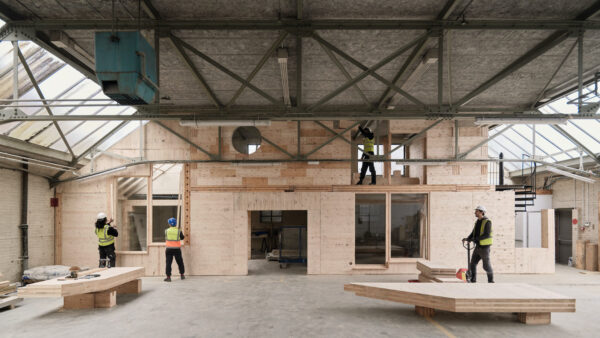
A large-scale electric energy centre that can heat thousands of homes without the need for boilers has received planning permission.
The facility, one of the largest of its kind in the UK, will provide low-carbon heating, hot water and cooling across Brent Cross Town, a new 180-acre park town in north London developed by Vattenfall, Related Argent and Barnet Council.
Once complete, the centre will connect 6,700 homes and more than 275,000 sq m of office, retail and leisure space to a heat network, removing the need for individual boilers and air conditioning units.
The all-electric energy centre will capture and store heat energy from the environment using heat pumps. Heat created during cooling will be recycled to warm Brent Cross Town buildings, while thermal stores will capture energy when electricity is cheapest and store it for later use.
The project received more than £14m from the government’s Green Heat Network Fund.
The first phase of construction is due to begin later this year, with the first customers connected to the network in 2027. Full completion is expected in 2032.
Making everyday life better
Alina Gheorghiu-Currie, director of London heat networks at Vattenfall, said: “Together with Related Argent and Barnet Council, we’re proving that communities don’t have to choose between comfort and sustainability. They can have both. This energy centre will make everyday life better for thousands of people, while also showing how growth in London can be achieved without compromising sustainability.”
Morwenna Hall, executive director and COO of Related Argent, added: “This is a significant moment in London’s journey to becoming net zero and we are proud to be delivering a town that will meet the needs of future generations of Londoners.
“Critical infrastructure, like the main energy centre, is an integral consideration when designing new towns and developments and must not be delivered in isolation. We need to see more private and public partnerships working together to deliver sustainable, innovative solutions which can unlock future economic growth and housing provision.”











